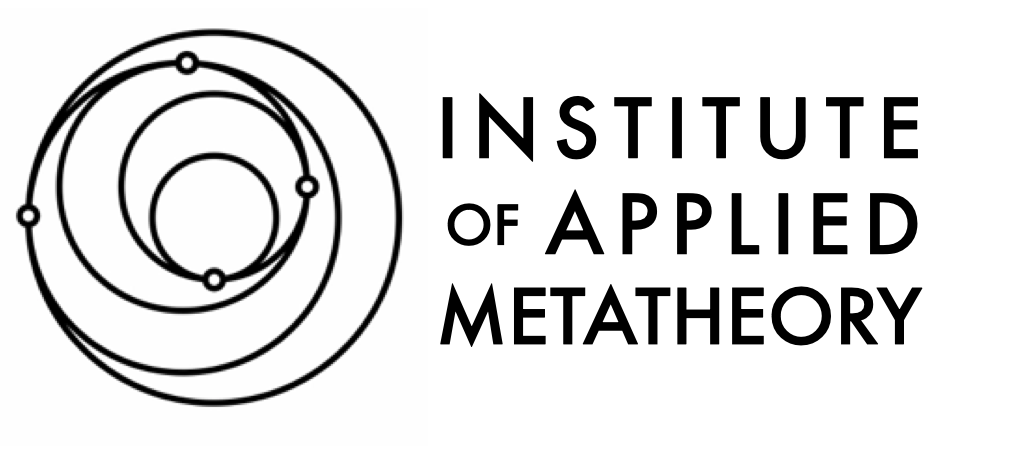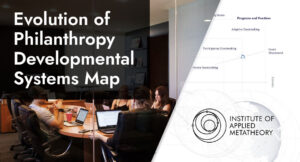
Problem Identified
The social sector, particularly in the US, now represents a significant portion of the workforce and the economy. As a whole, 3.7 Trillion dollars flowed through U.S. nonprofits in 2023. Such significant investment in the social sector should theoretically be yielding measurable amelioration of some of the social and environmental challenges the sector seeks to address. And yet, if we only look outside our windows, it becomes clear that many of our social and environmental challenges are only getting worse despite these efforts.
There are, of course, many reasons why even the most effective philanthropies and nonprofits are not often able to make significant progress on the challenges they were created to solve–but for this initiative, we intend to focus on what we theorize is the root cause:
The problems the social sector is trying to address are incredibly complex and wicked. They are multi-causal and multi-contextual, meaning that they involve so many different confluent factors, in so many different dimensions, that simply understanding the nature of the problem and thus being able to design the most effective interventions can be tremendously challenging. Social sector leaders are often busy doers who don’t have the capacity to research cutting edge metatheoretical models that might make it possible for them to create adequately complex theories of change to address them.
While many philanthropies and nonprofits employ tools like strategic planning, root-cause analysis, and theories of change to better understand and address the complex challenges they face, these tools will only be as robust as the underlying theory of reality (metatheory) that implicitly informs them. In most circumstances, the underlying theory of reality implicitly being employed in these organizations is the progressive worldview. As sophisticated and powerful as this worldview is, it is not nearly comprehensive enough to address our 21st-century social and environmental problems in their full complexity.
Approach
This initiative will leverage integrative metatheory to develop better metatheories of change for both social impact organizations and the philanthropies that fund them, helping them level up their ability to address the wicked social and environmental problems we face as a society. Once these change pathways have been socialized, validated, and refined, this initiative will then develop and publish a suite of nonprofit and philanthropic toolkits that will detail the frameworks and practices these organizations can use to build the capacity for transformational change in the sector. IAM consultants will work directly with organizations to deploy these toolkits, guiding them in activating the principles and practices necessary to strengthen their internal capacity and enhance their ability to tackle the complex challenges of the 21st century.
Transformational Thesis
Our theory of change is that philanthropic and nonprofit leaders need more robust internal (organizational development) and external (strategic development) metatheories of change to effectively tackle the wicked social and environmental challenges of the 21st century. By integrating cutting-edge metatheory into their leadership, strategic, and organizational development, these leaders can better navigate the complex, multi-causal nature of the problems they face. Through this initiative, we will equip these institutions with the frameworks, practices, and consultative support necessary to activate these principles and drive transformational change in the sector.
What’s at Stake
For any one social sector organization, what’s at stake is its effectiveness at addressing the social and environmental challenges it was created to ameliorate or solve. This, in turn, increases the organization’s ability to garner more time, talent, and treasure to their cause, and thus grows their capacity to make an even larger impact over time.
For society, a more effective social sector means that seemingly entrenched social and environmental ills begin to be better ameliorated, or even solved, leading to a more healthy, sustainable, and just society.
Success Benchmarks
- That philanthropies and nonprofits recognize the need for better internal and external theories of change and are moved to incorporate our toolkits in their organizational and strategic development efforts. This would be indicated by significant philanthropic and nonprofit demand for IAM toolkits and consulting services.
- That philanthropies and nonprofits who employ these more robust metatheories of change and toolkits in their organizational development begin to see better impact outcomes resulting from their programs and partnerships. This would be indicated by program impact evaluation, and later, by increased funding and support for the organizations involved.
Support Requests
- Metatheorists with philanthropic or nonprofit experience to participate in the toolkit development phase.
- Metatheorists with philanthropic or nonprofit leadership/consulting experience to help share the consulting load should the initiative become successful.

